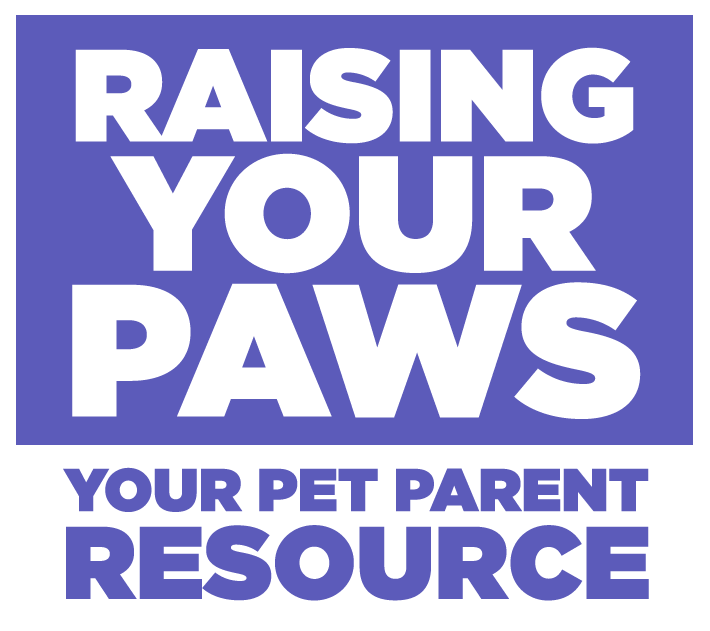When A Dog’s Sweet Tooth And Cars Collide.
Dogs like sweet things. They have taste buds that detect sugars just like we do. You can hear all about cats and dogs taste buds and what they taste compared to you, in the first segment, “How Good are Pet’s Taste Buds” in the Raising Your Paws podcast episode you’ll find below.
Does your dog like watermelon and blueberries like my dog Rosy does? I feed these on occasion to her because the fruit sugars in some fruits are okay for canines to eat. I don’t give her people cookies candy or cake however, and recommend you do the same. If your sugar seeking canine does happens to grab a cookie or two in the house, as long as there is not an abundance of dark chocolate in it, it’s most likely not going to cause a serious problem.

When outside though, dogs, being the scavengers they are, will always be sniffing around for anything that smells good enough to eat and you know they will pull you off of your legs to get to that piece of moldy pizza or rancid chicken bone or sweet smelling thing on the ground.  Here is where car maintance and a dog’s sweet tooth can be a dangerous combination. Did you know that automobile antifreeze is a common source of poisoning for dogs? It is the ethylene glycol in antifreeze that tastes very sweet to a dog and they like and are attracted to it.
Here is where car maintance and a dog’s sweet tooth can be a dangerous combination. Did you know that automobile antifreeze is a common source of poisoning for dogs? It is the ethylene glycol in antifreeze that tastes very sweet to a dog and they like and are attracted to it.
They way they get access to it is when leaks from the car’s radiator or coolant system leaves puddles of antifreeze on driveways, on the street and on the floor of your garage. Common colors you will see are green, orange, blue and pink. Those sweet smelling puddles can be very tempting to lap up. In fact, dogs that are housed in garages, even just part time, are at greater risk of antifreeze poisoning.
I used to see wet spots of green or pink antifreeze all the time, in the empty parking lot spaces of the condo where I lived with Rosy. We steered clear of them.
Most dogs that are attracted to the sweet taste of antifreeze, will lick it directly from those puddles or even from residue on the containers if you keep them in your garage. But dogs can also become indirectly poisoned if they walked in it and then later licked and cleaned up their soiled paws and fur. A cat is not attracted to the sweet taste, (having no taste buds for sweet) but if antifreeze gets on its paws, it will of course lick it off when they are washing themselves. Dogs are more commonly poisoned than cats. As little as ½ cup can kill a small to medium sized dog but one teaspoon can kill a cat. Studies in U.S. suggest that between 10,000 and 30,000 dogs die each year of this type of poisoning and the cases seem to increase twice a year as people add antifreeze in fall and remove it in spring.
Signs of Antifreeze Poisoning:
Early signs are drunken looking behavior such as wobbling and staggering then vomiting and diarrhea can follow. The symptoms do go away within 12 hours…but this does NOT mean the danger is passed. It progresses and gets worse, the digested antifreeze travels to the liver where it is broken down into toxic by-products. Those by-products then travel to the kidney which causes it to shut down and the dog and cat will no longer be able to urinate. Once this happens, the pet can go into a coma and die. As you can tell, this is serious, scary, stuff. The fatality rate is high and so if your pet laps up any amount of antifreeze, take immediate action – even if you only suspect it or are not sure if they got into it or not.
What To Do First:
Call your vet immediately or the ASPCA poison control center – 888-426-4435 to determine if you should induce vomiting. You only want to induce vomiting if your pet is fully conscious and in complete control. Woozy “drunk” pets can inhale the vomited material when it’s on the way up and suffocate. If your dog is acting drunk or depressed, just get to the emergency vet right away.
To induce vomiting: Use a 3 percent hydrogen peroxide solution. You can buy hydrogen peroxide at any drug store or the drug departments in grocery stores.
The dosage is about 1- 2 teaspoons for every 10 pounds of your pet. Use an eyedropper or cooking baster to squirt the mixture to the back of your pet’s tongue. The foaming action and taste is what triggers the gag reflex which causes the vomiting. Your pet should vomit within 5 minutes – if not, repeat 2-3 more times allowing 5 minutes between doses.
Then Get Medical Attention Immediately.
Remember, the symptoms go away but the damage is still going on in your pet’s body. There is effective treatment that the vet can do if it is started soon enough.
Take Action To Prevent Accedental Poisioning At Your Home.
There is very good news – there is a a safer antifreeze alternative to use in your cars.
Purchase and use the less harmful type of antifreeze -a propylene glycol-based one for your car. Propylene glycol is not totally non-toxic but is considerably less poisonous than ethylene glycol. It’s also not as sweet tasting so it is not as attractive to dogs. And great news for the car, there appears to be no performance differences between ethylene and propylene glycol antifreeze, so it’s a no-brainer choice to keep your dog safe.




First, I applaud you on a great article. It has been said that in the US, manufacturers voluntarily added denatonium benzoate to antifreeze to make it bitter and less attractive to pets. Although there is no policing or any authority checking to see if this is actually being done as far as I know, not even in states where laws have been passed to add denatonium benzoate to antifreeze. And even if they are adding denatonium benzoate to antifreeze, I suspect this only includes retail sales and not wholesale containers, automotive manufacturers, etc. Here is the link to the article about making it less attractive to pets. https://www.dvm360.com/view/antifreeze-manufacturers-agree-add-bittering-agent-make-products-unpalatable-animals-and-humans
sincerely Daniel Theriault.
Thank you for writing Daniel, and for this information. I was not aware that there was an effort to deter pets from antifreeze.